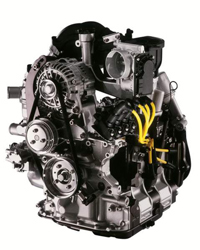Hyundai Galloper C1709 Engine Trouble Code
When your car's 'Hyundai Galloper C1709 Check Engine' light comes on, it's usually accompanied by a sinking feeling in the pit of your stomach. The light could mean a costly problem, like a bad catalytic converter, or it could be something minor, like a loose gas cap. But in many cases, it means at minimum that you'll be visiting the car dealer to locate the malfunction and get the light turned off.
Hyundai Galloper C1709 Code Meaning :
| C | 1 | 7 | 0 | 9 |
|---|---|---|---|---|
| OBD-II Diagnostic Chassis (C) Trouble Code For Engine | Fuel And Air Metering | Fuel Rail Pressure Sensor Circuit Malfunction | Cold Start Injector 1 Malfunction | Reverse Input Circuit |

|
When you check Hyundai Galloper car engine light came on code C1709 the reason should be . However manufacturer may have a different definition for the C1709 OBD-II Diagnostic Chassis (C) Trouble Code. So you should chech it on our car models. |
C1709 Fault Symptoms :
|
If one of these reasons for C1709 code is occuring now you should check C1709 repair processes.
Now don't ask yourself; What should you do with C1709 code ? The solution is here : |
Hyundai Galloper C1709 Possible Solution :
The crankshaft sensor signals the fuel injection computer or the ignition control when the cylinders are firing. This causes the ignition coil to provide a spark and the injector to inject fuel into each cylinder at the right time.If either sensor isn't working correctly, the car will run rough and the engine will be less efficient. In later car models, the car's computer can usually keep the vehicle running, but the engine warning light on the dashboard goes on to warn the driver.
C1709 OBD-II Diagnostic Chassis (C) Trouble Code DescriptionC1709 engine trouble code is about Reverse Input Circuit.Reason For C1709 CodeThe reason of C1709 OBD-II Engine Trouble Code is Fuel Rail Pressure Sensor Circuit Malfunction. |
Parts or components should not be replaced with reference to only a C1709 DTC. The vehicle service manual should be consulted for more information on possible causes of the fault, along with required testing.

